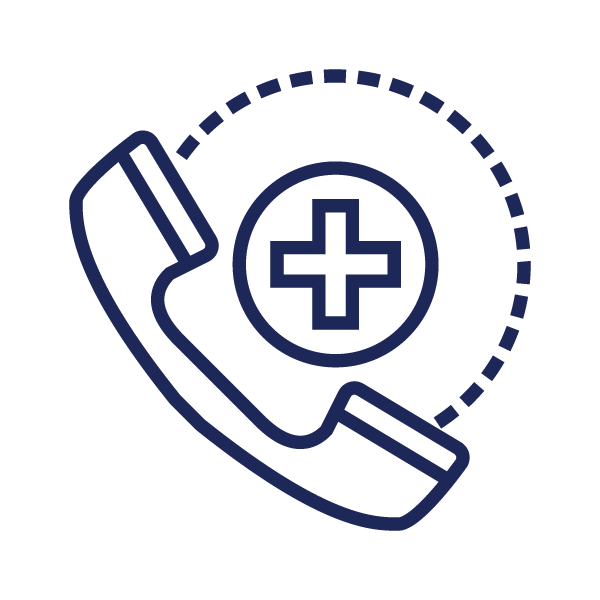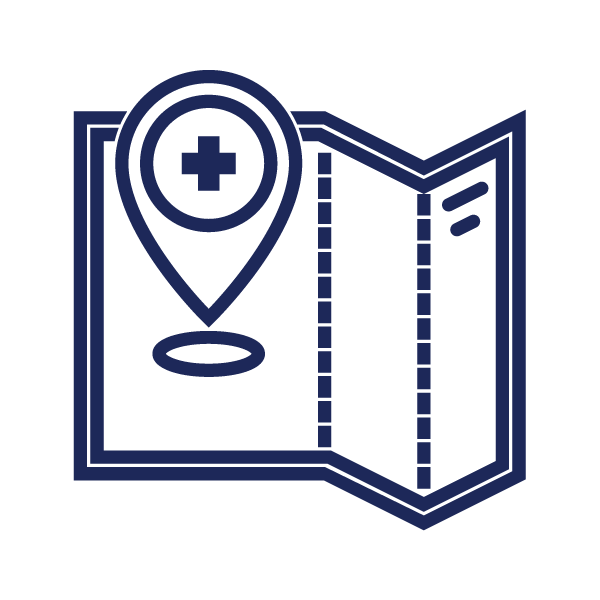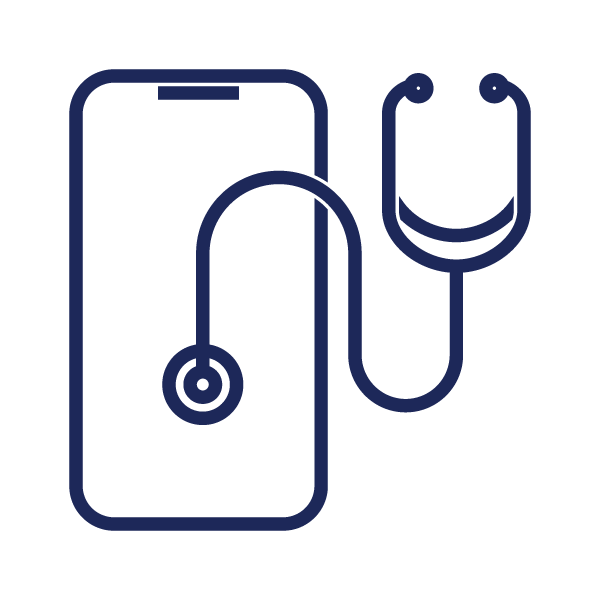Cardiology

Cardiology is the branch of medicine that deals with the diagnosis, treatment, and prevention of heart-related disorders. The heart is the most vital organ in the human body, pumping blood through the circulatory system to deliver oxygen and nutrients to various tissues and organs. When the heart is not functioning properly, it can lead to serious health complications and even life-threatening conditions. Cardiologists are the specialized doctors who focus on diagnosing and treating heart diseases and conditions, making cardiology an essential field in modern healthcare.
The Role of Cardiology in Healthcare
Cardiology plays a pivotal role in healthcare due to the heart’s central importance in maintaining overall health. With the increasing prevalence of heart disease worldwide, cardiology has become an essential part of medical practice. According to the World Health Organization (WHO), cardiovascular diseases (CVDs) are the leading cause of death globally, accounting for nearly 31% of all deaths. These diseases include conditions such as coronary artery disease, heart attacks, heart failure, and arrhythmias (irregular heartbeats).
As a result, the field of cardiology has evolved to encompass a wide range of specialties, treatments, and technologies aimed at improving heart health. Cardiologists are trained to identify the causes of heart problems, provide treatment options, and advise patients on lifestyle modifications to prevent further complications.
Types of Cardiologists
Cardiologists specialize in various subfields within cardiology, and each has a unique role in diagnosing and treating heart conditions:
Interventional Cardiologists: These specialists perform procedures such as angioplasty and stent placement to treat narrowed or blocked coronary arteries. They may also perform catheter-based interventions to address heart valve problems and congenital heart defects.
Electrophysiologists: This sub-specialty focuses on the electrical activity of the heart, diagnosing and treating arrhythmias (irregular heartbeats). Electrophysiologists use advanced techniques like ablation therapy to manage conditions like atrial fibrillation, ventricular tachycardia, and other heart rhythm disorders.
Heart Failure Specialists: These cardiologists focus on the treatment of heart failure, a condition where the heart is unable to pump blood efficiently. They often work with patients who have chronic conditions such as hypertension, diabetes, and coronary artery disease that lead to heart failure.
Pediatric Cardiologists: Pediatric cardiologists specialize in diagnosing and treating heart conditions in children, including congenital heart defects and other heart-related problems that may arise during childhood.
Non-invasive Cardiologists: These cardiologists diagnose heart conditions using non-invasive diagnostic tools like echocardiograms, stress tests, electrocardiograms (ECG), and MRI scans. They focus on identifying issues like heart disease, valve disorders, and congenital heart defects without the need for surgery or invasive procedures.
Preventive Cardiologists: These specialists focus on preventing cardiovascular diseases through lifestyle changes, medication, and early intervention. They work with patients to reduce risk factors such as high blood pressure, high cholesterol, smoking, and obesity, aiming to reduce the incidence of heart disease in the population.

Common Heart Diseases
Several types of heart conditions can affect individuals, each with its own symptoms and treatments. Some of the most common heart diseases include:
Coronary Artery Disease (CAD): This condition occurs when the blood vessels that supply the heart with oxygen and nutrients become narrowed or blocked due to the buildup of plaque (a combination of fat, cholesterol, and other substances). This can lead to chest pain (angina) or even heart attacks. CAD is the most common form of heart disease and is often linked to lifestyle factors such as poor diet, lack of exercise, and smoking.
Heart Attacks (Myocardial Infarction): A heart attack occurs when a coronary artery becomes completely blocked, causing a part of the heart muscle to be deprived of oxygen and die. Heart attacks often present with symptoms such as chest pain, shortness of breath, dizziness, and nausea. Immediate medical attention is essential to minimize damage to the heart.
Heart Failure: Heart failure is a chronic condition where the heart is unable to pump blood efficiently, leading to fluid buildup in the lungs and other parts of the body. This can result from other heart diseases such as coronary artery disease, hypertension, or previous heart attacks. Symptoms of heart failure include fatigue, swelling in the legs, and shortness of breath.
Arrhythmias: Arrhythmias are abnormal heart rhythms that can cause the heart to beat too fast, too slow, or irregularly. Common types of arrhythmias include atrial fibrillation, ventricular tachycardia, and bradycardia (slow heart rate). While some arrhythmias are harmless, others can be life-threatening and require treatment.
Valvular Heart Disease: This condition involves the malfunction of one or more of the heart’s valves, which regulate blood flow between the chambers of the heart. Valvular heart disease can be caused by infections, congenital defects, or age-related wear and tear. Common types include aortic stenosis and mitral valve prolapse.
Congenital Heart Disease: Congenital heart defects are structural problems with the heart that are present from birth. These defects can affect the heart’s chambers, valves, or blood vessels. While some congenital heart defects are mild and may not require treatment, others can be serious and may require surgery or ongoing care.
Diagnosis and Diagnostic Tools
Accurate diagnosis is critical in cardiology, as heart conditions can range from mild to life-threatening. Cardiologists use a variety of diagnostic tools and techniques to evaluate heart health and identify underlying issues. These tools include:
Electrocardiogram (ECG or EKG): This test measures the electrical activity of the heart and is used to detect arrhythmias, heart attacks, and other heart problems.
Echocardiogram: An echocardiogram uses sound waves to create images of the heart’s chambers and valves. It is commonly used to assess heart function, detect heart valve problems, and identify congenital defects.
Stress Test: A stress test involves monitoring the heart while the patient exercises, usually on a treadmill or stationary bike. This test helps identify how the heart responds to physical activity and can reveal issues such as coronary artery disease or arrhythmias.
Cardiac MRI: Magnetic resonance imaging (MRI) of the heart provides detailed images of the heart’s structure and function. This test is useful for assessing heart tissue damage, evaluating heart function, and detecting congenital defects.
Angiography: In this procedure, a contrast dye is injected into the coronary arteries to help visualize blockages or narrowing in the blood vessels. It is often used to diagnose coronary artery disease and guide treatment decisions such as angioplasty or stenting.
Blood Tests: Blood tests can measure levels of substances like cholesterol, triglycerides, and markers of heart damage (such as troponin) to assess heart health and determine the risk of cardiovascular diseases.

Treatment Options in Cardiology
Cardiology offers a wide range of treatment options, from lifestyle modifications and medications to advanced surgical procedures. Treatment plans are tailored to each patient based on the type and severity of their heart condition.
Lifestyle Changes: Preventive cardiologists emphasize the importance of a heart-healthy lifestyle, including regular exercise, a balanced diet, stress management, and smoking cessation. These changes can reduce the risk of developing heart disease and improve the quality of life for those already diagnosed with heart conditions.
Medications: Several types of medications are used to treat heart conditions, including:
Statins: Used to lower cholesterol levels and reduce the risk of coronary artery disease.
Beta-blockers: Help lower blood pressure and control heart rate, particularly in patients with arrhythmias or heart failure.
Anticoagulants: Used to prevent blood clots and reduce the risk of stroke in patients with atrial fibrillation.
Angiotensin-converting enzyme (ACE) inhibitors: Help relax blood vessels and improve heart function, especially in heart failure patients.
Cardiac Surgery: In cases where medications and lifestyle changes are not sufficient, surgery may be necessary. Common cardiac surgeries include:
Coronary Artery Bypass Grafting (CABG): This surgery involves bypassing blocked coronary arteries to restore blood flow to the heart.
Heart Valve Surgery: Involves repairing or replacing damaged heart valves.
Heart Transplant: In severe cases of heart failure, a heart transplant may be considered when other treatments are ineffective.
Interventional Procedures: Invasive procedures like angioplasty, stent placement, and catheter-based valve repair are often performed by interventional cardiologists to treat blocked arteries and heart valve issues without the need for open-heart surgery.

The Future of Cardiology
The field of cardiology continues to evolve with advancements in medical technology, diagnostic techniques, and treatment options. Innovations like minimally invasive procedures, robotic-assisted surgery, and personalized medicine are shaping the future of heart care.
Genetic research is also opening new doors for understanding heart disease at the molecular level, potentially leading to more targeted therapies for conditions like familial hypercholesterolemia and inherited arrhythmias. Furthermore, artificial intelligence and machine learning are increasingly being used to enhance diagnostic accuracy and predict patient outcomes.
As the global population ages and heart disease remains a leading cause of death, the importance of cardiology in modern healthcare will only continue to grow. By focusing on early detection, prevention, and personalized care, cardiology is poised to save millions of lives and improve the quality of life for heart patients worldwide.
Conclusion
Cardiology is a dynamic and critical field that directly impacts the health and well-being of millions of people worldwide. With the increasing prevalence of heart disease, understanding and advancing cardiology is more important than ever. Cardiologists, with their specialized training and expertise, are dedicated to diagnosing, treating, and preventing heart conditions, offering hope and care to those in need. As medical research and technology continue to evolve, cardiology will remain at the forefront of improving heart health and saving lives.
For personalized care and consultation, visit Dr. Aditya Aggarwal to learn more about heart health and available treatments.
Frequently Asked Questions (FAQs) About Cardiology
Q1. What does a cardiologist do?
Ans: A cardiologist is a medical doctor who diagnoses and treats heart-related conditions. They may use various tests, including ECGs, echocardiograms, and stress tests, to evaluate heart health. Cardiologists also provide treatment plans that can include lifestyle changes, medications, and sometimes surgical interventions like angioplasty or bypass surgery.
Q2. What are some common heart conditions treated by cardiologists?
Ans: Some common heart conditions that cardiologists treat include:
Coronary Artery Disease (CAD): Blockage or narrowing of the coronary arteries due to plaque buildup.
Heart Failure: A condition where the heart can’t pump blood efficiently.
Arrhythmias: Irregular heart rhythms, such as atrial fibrillation.
Heart Attacks: A blockage of blood flow to the heart muscle.
Valvular Heart Disease: Problems with one or more of the heart’s valves.
Q3. Can heart disease be prevented?
Ans: Yes, heart disease can often be prevented by managing risk factors. Key prevention strategies include maintaining a healthy diet, staying active, managing stress, avoiding smoking, and keeping conditions like high blood pressure, high cholesterol, and diabetes under control.
Q4. What is the difference between a cardiologist and a heart surgeon?
Ans: A cardiologist is a doctor who specializes in diagnosing and treating heart diseases through medications, lifestyle modifications, and non-invasive procedures. A heart surgeon (cardiothoracic surgeon), on the other hand, performs surgeries on the heart, such as bypass surgery or valve replacement.
Q5. Can I live a normal life with heart disease?
Ans: Yes, many people with heart disease can live full, active lives with the right treatment and lifestyle changes. Managing your condition with medications, regular check-ups, and adopting heart-healthy habits is crucial. Your cardiologist will work with you to develop a treatment plan tailored to your needs.
Q6. What is heart failure, and can it be treated?
Ans: Heart failure occurs when the heart is unable to pump blood efficiently to meet the body’s needs. It can be caused by various factors like coronary artery disease, high blood pressure, or previous heart attacks. While heart failure is a chronic condition, it can be managed with medications, lifestyle changes, and sometimes procedures like valve repair or a heart transplant in severe cases.
Q7. Is cardiology treatment covered by insurance?
Ans: In most cases, cardiology treatments, including consultations, diagnostic tests, medications, and surgeries, are covered by health insurance. However, coverage can vary depending on your plan, so it’s essential to check with your insurance provider for specific details regarding coverage and out-of-pocket expenses.
Want to consult about health? contact us
Get in Touch
They are Donec mollis dictum sagittis. In tincidunt egestas tellus quis ultrices. Nunc id rhoncus tortor, at feugiat mi.

Emergency Contact
- Free Call 24/7
- +91-9266610335

Hospital Location
- Open In 24 Hours
- Plot No.4, Pocket -7 Sec A-10, Narela, Opp. SRHC Hospital, Delhi -40

Phone Contact
- Within Working Hours
- 123-234-1234



